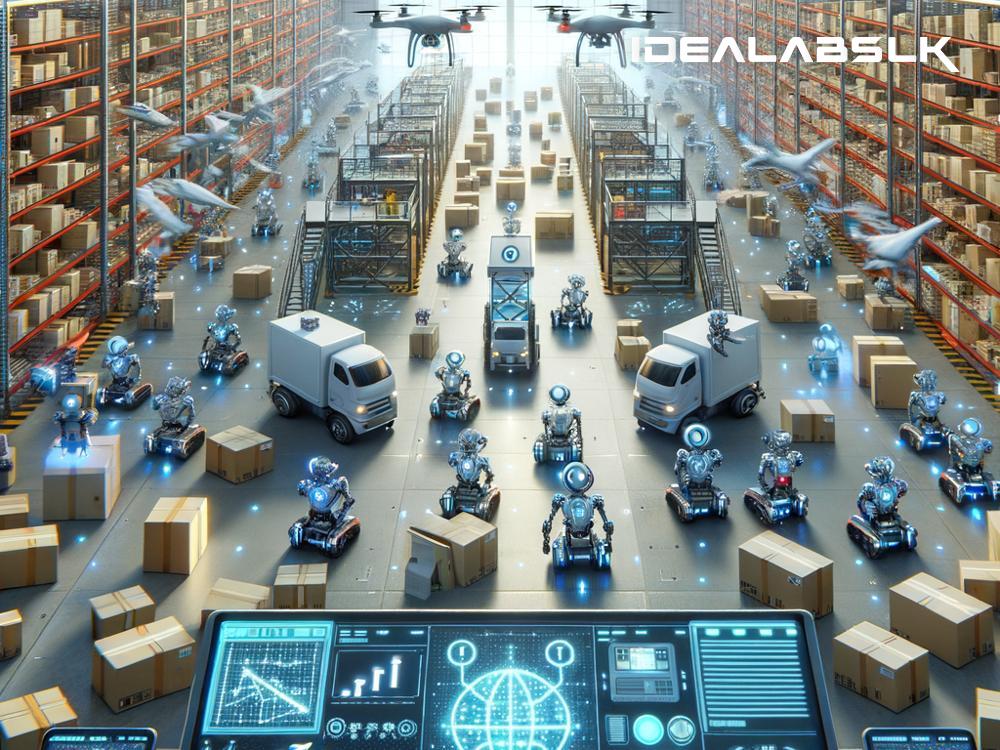The Role of AI in Future Logistics Optimization: Simplifying Complex Operations
In today's fast-paced world, the logistics industry is under constant pressure to deliver products faster, more efficiently, and at a lower cost. Gone are the days when traditional methods could keep up with the growing demands of the market. This is where Artificial Intelligence (AI) comes into play. AI is no longer a futuristic concept but a practical tool revolutionizing how logistics companies operate. By integrating AI, businesses are not only streamlining their operations but also setting the stage for a future where logistics optimization is not just a goal but a reality.
Understanding AI in Logistics
Before diving into how AI is transforming logistics, it's essential to understand what AI in this context means. In simple terms, AI refers to machines or software that can perform tasks that normally require human intelligence. This includes things like problem-solving, planning, learning, and understanding language. In logistics, AI is used to make complex decisions quickly, predict future trends, and automate repetitive tasks.
Predictive Analytics and Decision Making
One of the critical benefits of AI in logistics is its ability to predict future outcomes based on historical data. By analyzing patterns and trends, AI can forecast demand, identify potential disruptions in the supply chain, and suggest the most efficient routes and modes of transportation. This not only saves time but also significantly reduces costs and increases the reliability of deliveries. Imagine being able to anticipate a delay before it happens and rerouting your shipments to meet delivery deadlines without human intervention. That's the power of predictive analytics, and it's only scratching the surface of what AI can offer.
Automation and Efficiency
At its core, logistics is about moving items from point A to point B as efficiently as possible. Traditionally, this involved a lot of manual planning, coordination, and execution, which can be time-consuming and prone to errors. AI changes the game by automating these processes. Whether it's managing inventory, scheduling deliveries, or tracking shipments in real-time, AI systems can handle these tasks with incredible accuracy and speed. The reduction in manual intervention not only minimizes the risk of errors but also allows human employees to focus on more strategic tasks that require a human touch.
Enhanced Customer Experience
In today's market, customer expectations are higher than ever. They not only demand fast and reliable deliveries but also complete transparency throughout the shipping process. AI plays a pivotal role in meeting these expectations by providing real-time tracking updates, predicting delivery times more accurately, and even automating customer service interactions. By enhancing the customer experience, businesses can build stronger relationships with their clientele, which is essential for retaining customers and gaining a competitive edge.
The Future of AI in Logistics
As technology continues to evolve, the role of AI in logistics is set to expand even further. We're already seeing the emergence of autonomous vehicles and drones for delivery, powered by AI. These technologies promise to make same-day and even same-hour deliveries more feasible on a larger scale, dramatically changing the logistics landscape.
Moreover, AI's ability to learn and improve over time means that logistics operations will become even more efficient and cost-effective. As AI systems process more data, they'll get better at predicting trends, optimizing routes, and managing inventories, leading to continuous improvements in logistics operations.
Challenges and Considerations
While the benefits of AI in logistics are undeniable, there are also challenges to consider. The implementation of AI requires significant investment in technology and training. There are also concerns about data privacy and the potential loss of jobs due to automation. Addressing these challenges requires a balanced approach, considering both the technological and human aspects of logistics.
Conclusion
The integration of AI in logistics is not just a trend but a fundamental shift in how the industry operates. With its ability to predict, automate, and optimize, AI is making logistics more efficient, cost-effective, and customer-centric. As we look to the future, the continued evolution of AI technologies promises even greater advancements and opportunities for logistics optimization. For businesses willing to embrace this change, the road ahead is filled with exciting possibilities. Embracing AI in logistics is not just about keeping up with the competition; it's about setting the stage for a future where logistics operations are seamless, sustainable, and responsive to the ever-changing market demands.

